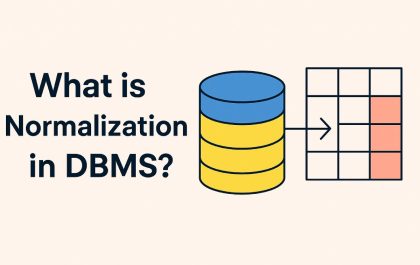The healthcare industry has been undergoing a major transformation in recent years, with a growing emphasis on data-driven decision-making. This shift is not limited to hospitals and clinics but also extends to dental practices. Dental professionals are increasingly recognizing the value of data analytics in optimizing their Revenue Cycle Management (RCM). By leveraging dental software for insights, practices can improve their financial health, enhance patient care, and streamline operations.
Table of Contents
ToggleRevenue Cycle Management (RCM) in Dentistry
RCM is the process of managing a dental practice’s financial operations, from scheduling patient appointments to receiving payment for services rendered. It encompasses various stages, including patient registration, insurance verification, treatment planning, billing, claims submission, and payment posting. Each of these stages generates a wealth of data that can be harnessed to improve the efficiency and profitability of the dental practice.
The Role of Dental Software
Dental software plays a crucial role in collecting and organizing the data needed for RCM. Modern practice management software systems are equipped with features that facilitate data collection and storage, making it easier for professionals to manage their RCM effectively. These software solutions capture information related to patient demographics, insurance coverage, treatment plans, and billing details, which can be used for analytical purposes.
Leveraging Data Analytics
Data analytics involves the examination of data to extract valuable insights and drive informed decision-making. In dental RCM, data analytics can applied in several ways:
1. Performance Metrics:
Dental practices can use data analytics to measure their performance. Key performance indicators (KPIs) like revenue, collection rates, and accounts receivable days can be analyzed to identify trends and areas for improvement. For example, practices can identify patterns of delayed payments and take proactive measures to address them.
2. Predictive Analytics:
Predictive analytics can help dental practices forecast future financial performance. By analyzing historical data, practices can make informed predictions about revenue, patient flow, and resource allocation. It can assist in budgeting, staffing decisions, and long-term financial planning.
3. Insurance Claims Processing:
Data analytics can streamline the claims submission process. By analyzing historical claims data, dental practices can identify common errors that lead to claim rejections and denials. This information can uses to improve claims accuracy, increase the rate of successful claims, and reduce revenue leakage.
4. Patient Engagement:
Analyzing patient data can provide insights into patient behavior and preferences. Practices can use this information to tailor their communication and marketing strategies, resulting in improved patient engagement and loyalty.
5. Fraud Detection:
Dental software can use to monitor for unusual billing or coding patterns that may indicate fraudulent activities. Data analytics can help practices identify and prevent fraud, protecting their revenue and reputation.
Challenges in Implementing Data Analytics
While the potential benefits of data analytics in dental RCM are significant, there are challenges that practices may encounter during implementation:
Staff Training:
Dental practice staff may need training to understand and use data analytics tools effectively. Investing in staff education is essential for successful implementation.
Cost:
Implementing data analytics tools and processes may require an initial investment in software, hardware, and training. Practices must weigh these costs against the potential benefits.
Conclusion
The integration of data analytics in dental RCM is becoming increasingly important in today’s healthcare landscape. By using data analytics to measure performance, predict future trends, streamline claims processing, engage patients, and detect fraud, dental practices can optimize their RCM and deliver better overall service. While challenges exist in the implementation of data analytics, the long-term benefits make it a worthwhile investment for dental professionals looking to thrive in a data-driven world.
Shashi Teja
Related posts
Hot Topics
Enhancing School Safety with Intelligent Threat Response Systems
Introduction According to the K-12 School Shooting Database, there were 346 school shootings in the United States in 2023 alone,…
What is Normalization in DBMS: The Complete Guide
What is normalization in DBMS? Look, I’m gonna be straight with you – when I first heard this term, I…



